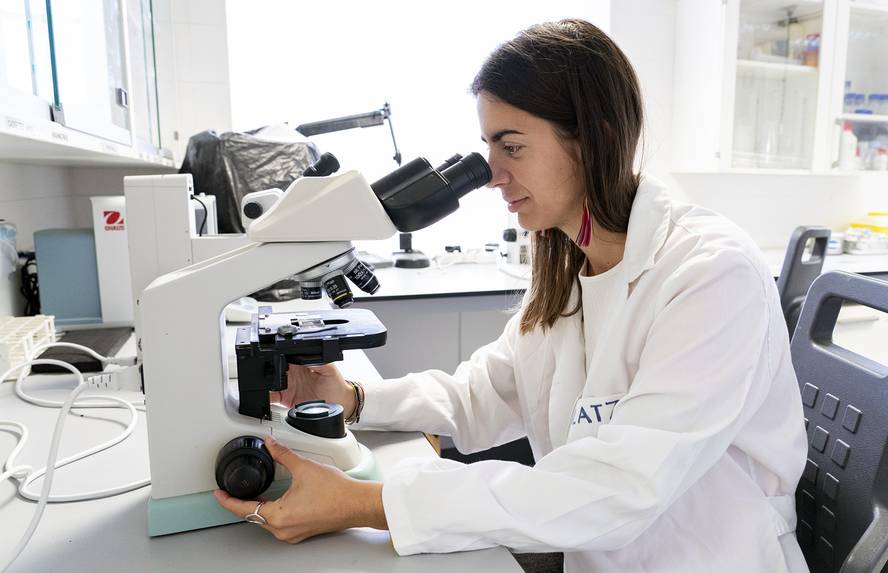“I think it is necessary that people who are different have a place in science”
Olatz Ortega Vidales' profile of the social network X is written as follows: "Biology (basis of life) | Ecotoxicology (A method for saving life)". It is therefore clear from the outset that both issues are of vital importance to him.
In fact, when she chose college, she opted for a degree in biology. "Biology is for me a science that explains life itself, that is, ecosystems and their interactions." And then he held a master's degree in ecotoxicology: "And there we learned the other side: how human pollution affects all other beings on our planet. In addition, and given a little back, we also learned bioremediation, that is, how to deal with it with nature," explains Ortega.
This is the optimistic perspective that you are working with now. He believes that it is also appropriate to overcome the eco-anxiety that is currently spreading in society. "In people moving around environmentalism there is a great concern or feeling of responsibility that generates a great concern for what we have to do and what we can do. This feeling is particularly noticeable among people between the ages of 20 and 25, so I'm slowly trying to turn it around, making sense of what each of us can do. In the end, the climate and social crisis, even though we're worried about problems that are so big and so global, that they don't lead us to stop, to paralyze us."
Ortega is not standing: "I'm working at the Plentzia Marine Station, on the project "Hey, don't think." It is very different from the other projects carried out at the station, as it is a citizen science project, so citizenship is an active participant. And what do we do? Well, we know, we identify and we analyze the invisible organisms that live in the sand."
The saying says that what is not known cannot be loved. And that's the goal of the project. "To know oneself, to come to love and, wanting, to be a passion for defending oneself". He explains that the participants are professors and students of the ESO in any center, for example, diversification and combined school.
Against distinctions
Associations are also involved, so they want to work with inclusiveness: "It is our intention to make the project more democratic. And we wanted to put the accent on groups that are not normally so present in science. These are some of the groups that can suffer from social exclusion, for example, groups that bring together people with physical or mental disabilities: people with hearing or visual impairment, spectra of autism... There is a lot of diversity and we wanted all dissent to be included in our project."
According to Ortega, it is a great process of empowerment for the members of these groups from the point of view of the creation of the community. And on the other hand, for scientists, it's very enriching. "I am studying a lot, and today in science it seems essential that people who are different have a place. It's true that it's very difficult, in a science that's so hierarchical and so Norwegian, but we're on the way, and I think we're fine. At least, the feedback received is very positive, and I'm very happy with what I'm learning and what I'm growing up."
Of course, when he started studying biology, he didn't imagine that he was going to work on such a kind of work, but he remembered that he's always worked with people he liked, and that he's had diversity, "both biodiversity and diversity among people." It recognizes, however, that we have to learn to do that work.
In this sense, I would like to have a PhD. However, it clearly states that it is very difficult to obtain a PhD scholarship for such projects. “In fact, citizen science is a relatively new concept in the scientific field, and doctoral application documents do not include either the pure sciences or the social sciences. It is therefore very difficult to understand what it is and to see the need for such projects. It seems more important to investigate a parasite (and I do not mean that it is not important) than to promote projects that require the participation of all.” In any event, it has not lost hope and has a firm intention of moving forward with the project.







